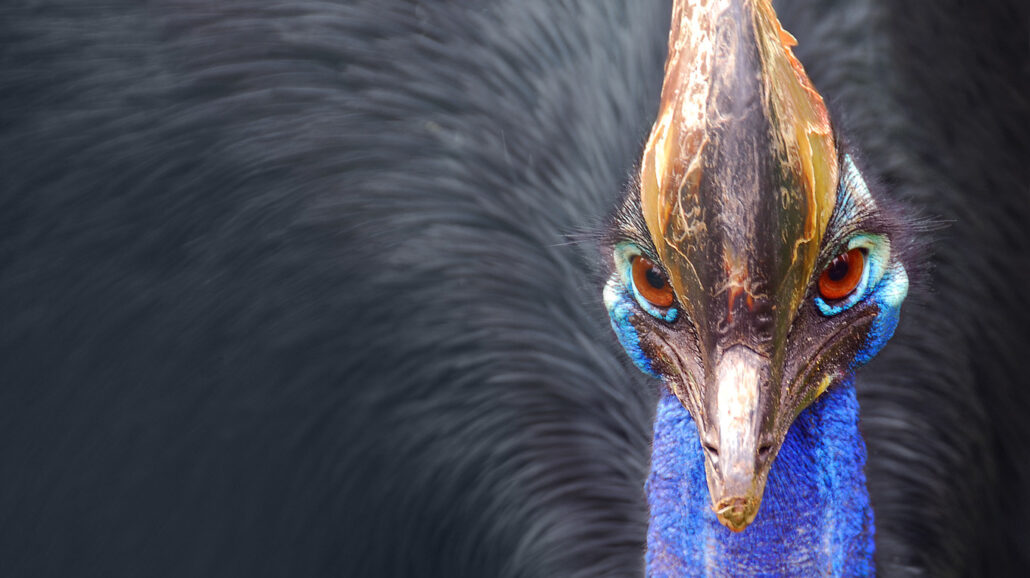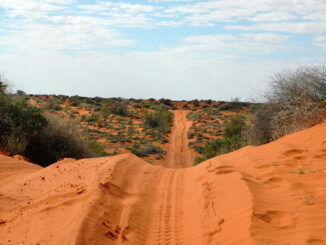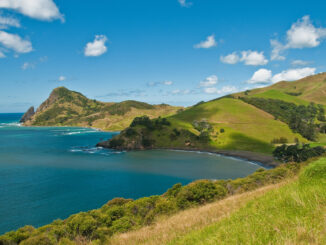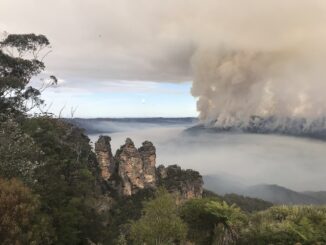
Visitors to a popular public beach in Queensland had their fun interrupted by an unwelcome guest—a large cassowary, a flightless bird native to Australia.
“Those watching on initially thought it was a turtle,” said Queensland’s Department of Environment and Science in a news release. “Then they thought it might be a shark’s dorsal fin. As they watched on, they were stunned when a sub-adult cassowary emerged from the ocean and shook itself off.”
Cassowaries inhabit the tropical forests of far northern Queensland close to the coastal camping destination. An endangered species—the Department said only about 4,000 survive in Queensland—people are strongly advised to stay away from them as they are prone to unpredictable and often violent behavior.
A parks and wildlife official said it’s not uncommon for cassowaries to swim.
“Cassowaries can swim and will take to the water to cross from one side of a river to the other, or if they feel threatened by domestic dogs or another cassowary through a territorial dispute,” Queensland Parks and Wildlife Service officer Stephen Clough said in the release. “They face numerous threats to their survival including habitat loss, vehicle strikes, and domestic dog attacks.”
Onlookers said the cassowary looked exhausted after emerging from the sea. Because of the species’ endangered status, residents are asked to report all sightings to wildlife authorities. Visitors reported the sight to a campground manager.
An adult cassowary can stand as tall as an adult human male. Their chief defense mechanism is their sharp claws which the species can use to badly injure adversaries with powerful kicks.
Often dubbed “the world’s most dangerous bird,” a defensive cassowary can badly injure people, and some are said to have caused fatalities.
Wildlife managers say anyone encountering a cassowary in the wild should back away and put something between themselves and the large bird for protection, and then freeze until the animal leaves the area.
Clough speculated that the cassowary discovered at the beach likely escaped into the sea to avoid a threat.
“This rare sighting and lucky escape by the cassowary is a reminder that we all need to do what we can to protect and conserve the species,” Clough said.
©2025 Public Parks
Park Info
Park Name:
Bingil Bay Campground, Queensland
Location:
Australia
More information:



